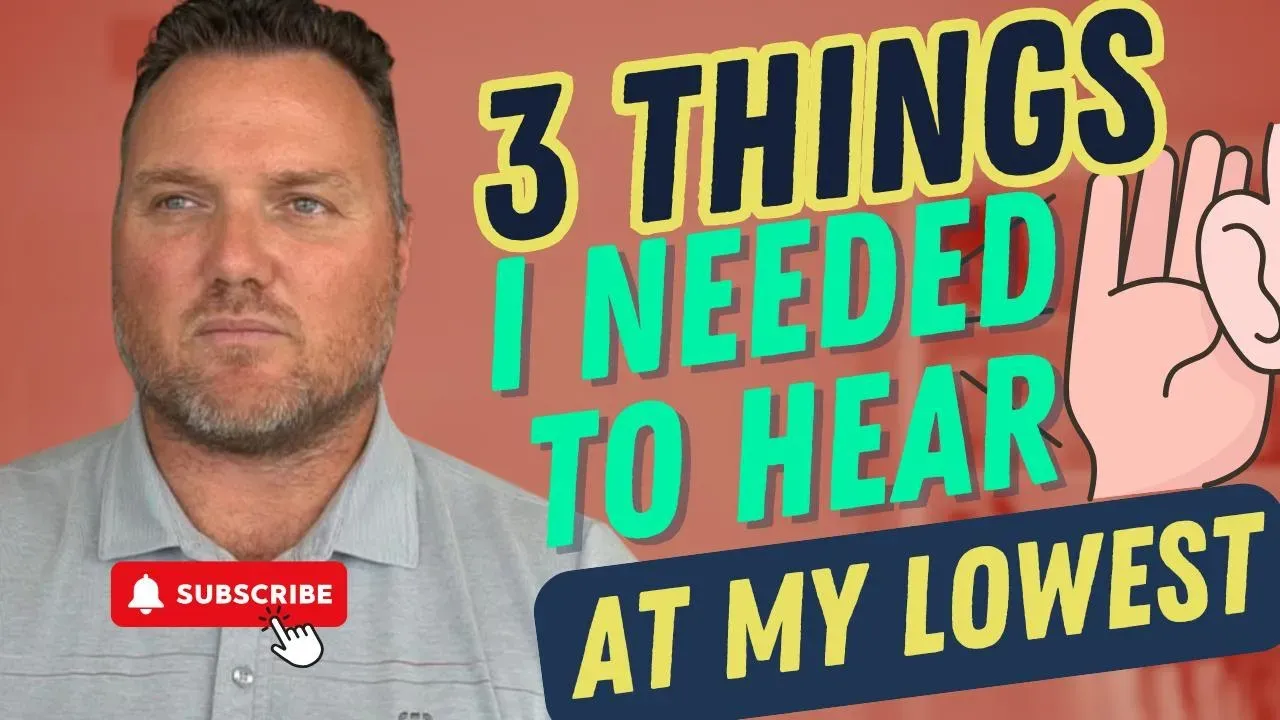3 Things I Needed to Hear at My Lowest (That You Might Need Too)
Aug 20, 2025
3 Things I Needed to Hear at My Lowest (That You Might Need Too)
By Matt Codde | Restored Minds
If you’re feeling overwhelmed, exhausted, and on the verge of giving up in your battle with OCD or anxiety, you are absolutely not alone. For years, I wrestled with these same feelings—of hopelessness, anger, and the daunting belief that this pain might last forever. I created this post to share the three most important things I wish someone had told me during my darkest days. These insights changed everything for me, and I hope they can help you too.
1. This Isn’t Chronic—You’re Not Stuck Forever
One of the most defeating messages in the anxiety and OCD community is that you’re dealing with something “chronic,” something that can never be overcome. I fundamentally disagree.
When people tell you it’s chronic, what they’re really communicating is that they don’t know how to help. That doesn’t mean it’s true. Your experiences—no matter how intense—aren’t a life sentence. I know this because I’ve both lived “in it” and learned how to live beyond it. Real recovery means shifting your state of consciousness, moving from fear and overwhelm to trust, acceptance, and peace.
Key Insight:
Fear is not a disease. Each emotion isn’t a disorder. You can transcend them by changing the way you relate to those feelings instead of resigning yourself to a lifetime of struggle.
2. Your Thoughts Are Not the Real Problem
One of the most common traps for those with OCD and anxiety is obsessing over the specific thoughts or “themes” you have, whether that’s related to harm, religion, health, social situations, or anything else.
Here’s the truth:
The content of your thoughts isn’t the core issue. Thoughts exist within an emotional context. It’s the underlying emotional field—like fear—that fuels these thoughts and keeps you stuck in a loop.
When you try to “solve” your problem at the level of thought, you end up indirectly perpetuating it. Even if you become desensitized to one theme, the unresolved emotion will just attach itself to something else. That’s why real healing requires working with the deeper emotional and belief systems beneath your thoughts—not simply reshuffling mental content.
3. Shifting Your Paradigm Is the Shortcut to Healing
A paradigm is simply the way you see the world—your collection of beliefs, perceptions, and experiences. Most people don’t even realize they’re operating within a paradigm; it just feels like reality.
The quickest path to change? Shift your paradigm.
Trying to solve OCD and anxiety from the same mental framework only keeps you stuck. You need an outside perspective—someone who’s walked the path and can offer a new way of seeing your situation. As Einstein said, “You can’t solve a problem from the same level of consciousness in which it was created.”
Surround yourself with people who have achieved the kind of change you’re seeking. That’s how you learn to operate from a whole new frame of reference and create results you never thought possible.
Final Thoughts
The messages you expose yourself to on your healing journey deeply affect your outcomes. Ignore those who tell you “it’s chronic.” Stop trying to outthink your thoughts. Seek out new paradigms and support systems. True transformation happens from the inside out, when you approach your healing at a deeper level.


